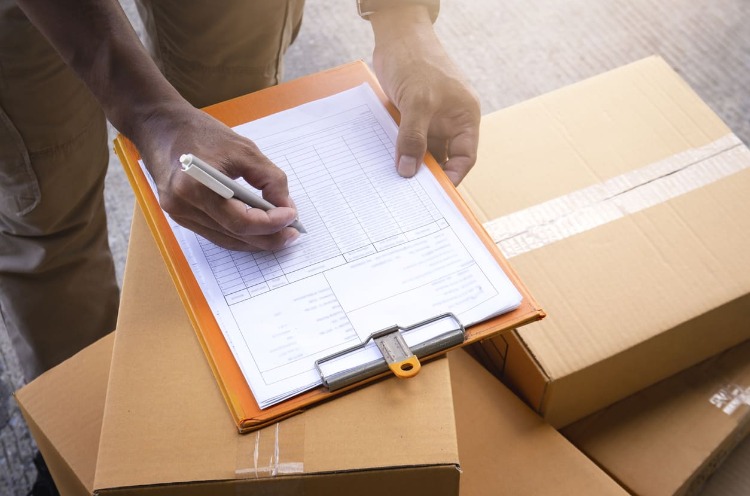
If you’ve never shipped something through a forwarding business before, it may seem complicated. Understanding the necessary paperwork is essential for efficient shipment, whether you’re sending personal or business-related products. Knowing the documentation needed will help anyone working with a Package Forwarding Company in Florida avoid unforeseen problems and delays. Let’s define your needs in plain, easy-to-understand language.
What Is a Forwarding Company?
Before talking about paperwork, it helps to know what a forwarding company does. A forwarding company receives your parcels, usually from multiple sellers, and then ships them all together to your address. This is especially helpful when sellers don’t ship directly to your location or when you want to save on shipping costs by consolidating packages.
Why Paperwork Matters in Shipping
Shipping involves crossing borders and moving through customs, which means authorities need to know what’s inside the packages. Paperwork provides the necessary information about the contents, value, and sender, which helps avoid customs issues. Missing or incorrect paperwork can cause packages to be delayed, held, or even returned.
Basic Paperwork for Shipping with a Forwarding Company
The paperwork required may vary depending on the destination country, package contents, and shipping method. However, there are common documents that most forwarding companies require before they can ship your parcels.
1. Shipping Label
Every package must have a clear shipping label. This label includes the recipient’s address, the sender’s address, and tracking details. It ensures the package gets to the right place without confusion. Forwarding companies often generate this label after you provide the delivery information.
2. Commercial Invoice
This document lists the items in the package, their quantity, and their declared value. It’s mainly used for customs clearance to determine taxes and duties. Even if you’re sending gifts or personal items, a commercial invoice or a similar document is usually necessary. It must be accurate and honest to avoid penalties or package holds.
3. Packing List
A packing list details what is inside the package without revealing the value. This helps customs officers verify the contents during inspection. Sometimes, forwarding companies ask you to submit a packing list so they can confirm everything matches before shipment.
4. Customs Declaration Form
This form provides customs authorities with key information about the shipment. It includes details such as the type of goods, their purpose (e.g., sale, gift, sample), and value. The form is often required for international shipping and must be completed carefully to prevent delays.
5. Import/Export Licenses
Certain items require special permits to ship internationally. If you’re sending restricted or regulated goods, like electronics, food, or medical supplies, you might need an import or export license. Forwarding companies usually ask for these documents to ensure compliance with local and international laws.
Extra Documents for Specific Shipments
Depending on the nature of your shipment, you might need extra paperwork to clear customs smoothly.
6. Certificate of Origin
Some countries require proof of where the goods were made. The certificate of origin verifies the manufacturing country and can affect customs duties. This document is often necessary for commercial shipments.
7. Insurance Documents
If you want your package insured against loss or damage, proof of insurance is helpful. Forwarding companies may require insurance paperwork, especially for valuable shipments.
8. Special Handling Instructions
For fragile or hazardous items, you may need to provide documentation explaining how the package should be handled. This helps the forwarding company and carriers treat your package appropriately.
How to Prepare Your Paperwork
Getting your paperwork right starts with collecting all the necessary details about your shipment. Write down what you’re sending, the value of each item, and the reason for shipping. You’ll need to fill out forms honestly and clearly. Double-check that all names, addresses, and contact information are correct.
If you’re using a forwarding company, they often guide you through the paperwork process or provide templates. Don’t hesitate to ask questions—they want your package to arrive safely, too.
Common Mistakes to Avoid
Paperwork errors are a frequent cause of shipping problems. Avoid these common pitfalls:
- Using vague descriptions like “gift” or “merchandise” without details.
- Underestimating or overestimating the value of your items.
- Forgetting to sign or date customs forms.
- Not including the correct invoices or licenses.
- Mixing up sender and recipient addresses.
Taking time to fill everything out carefully can save you headaches and extra costs.
How Paperwork Affects Shipping Time
Clear and complete paperwork can speed up the customs process, so your package moves faster. On the other hand, missing or incorrect documents often cause packages to be held for inspection or returned, adding days or weeks to delivery times.
Forwarding companies sometimes hold packages until all paperwork is ready. This pause can help avoid bigger delays once the package is with the carrier.
Digital vs. Paper Forms
Many forwarding companies and carriers now use digital systems to submit paperwork. This allows faster processing and easier tracking. Still, some documents might require physical copies, especially for sensitive or high-value shipments. Make sure to ask your forwarding company which format they prefer.
What Happens If Paperwork Is Missing?
If paperwork is incomplete or missing, customs may refuse to release the package. This can lead to fines, additional fees, or even confiscation of goods. The forwarding company may contact you to provide missing documents, delaying the shipment.
In some cases, packages are sent back to the sender at a higher cost. That’s why keeping paperwork in order is so important.
Final Thought:
Shipping with a forwarding company becomes much easier when you handle paperwork carefully. Focus on honesty, accuracy, and clarity in all your documents. When you get the paperwork right, your shipment moves quickly and arrives without surprises.
If you work with a Shipping items through a forwarding company can seem tricky if you’re not familiar with the process. Whether you’re sending personal packages or running a business, knowing the paperwork required is key to smooth shipping. For anyone working with a Package Forwarding Company in Florida, understanding the documents involved will help avoid delays and unexpected issues. Let’s break down what you need in clear, simple terms.
What Is a Forwarding Company?
Before talking about paperwork, it helps to know what a forwarding company does. A forwarding company receives your parcels, usually from multiple sellers, and then ships them all together to your address. This is especially helpful when sellers don’t ship directly to your location or when you want to save on shipping costs by consolidating packages.
Why Paperwork Matters in Shipping
Shipping involves crossing borders and moving through customs, which means authorities need to know what’s inside the packages. Paperwork provides the necessary information about the contents, value, and sender, which helps avoid customs issues. Missing or incorrect paperwork can cause packages to be delayed, held, or even returned.
Basic Paperwork for Shipping with a Forwarding Company
The paperwork required may vary depending on the destination country, package contents, and shipping method. However, there are common documents that most forwarding companies require before they can ship your parcels.
1. Shipping Label
Every package must have a clear shipping label. This label includes the recipient’s address, the sender’s address, and tracking details. It ensures the package gets to the right place without confusion. Forwarding companies often generate this label after you provide the delivery information.
2. Commercial Invoice
This document lists the items in the package, their quantity, and their declared value. It’s mainly used for customs clearance to determine taxes and duties. Even if you’re sending gifts or personal items, a commercial invoice or a similar document is usually necessary. It must be accurate and honest to avoid penalties or package holds.
3. Packing List
A packing list details what is inside the package without revealing the value. This helps customs officers verify the contents during inspection. Sometimes, forwarding companies ask you to submit a packing list so they can confirm everything matches before shipment.
4. Customs Declaration Form
This form provides customs authorities with key information about the shipment. It includes details such as the type of goods, their purpose (e.g., sale, gift, sample), and value. The form is often required for international shipping and must be completed carefully to prevent delays.
5. Import/Export Licenses
Certain items require special permits to ship internationally. If you’re sending restricted or regulated goods, like electronics, food, or medical supplies, you might need an import or export license. Forwarding companies usually ask for these documents to ensure compliance with local and international laws.
Extra Documents for Specific Shipments
Depending on the nature of your shipment, you might need extra paperwork to clear customs smoothly.
6. Certificate of Origin
Some countries require proof of where the goods were made. The certificate of origin verifies the manufacturing country and can affect customs duties. This document is often necessary for commercial shipments.
7. Insurance Documents
If you want your package insured against loss or damage, proof of insurance is helpful. Forwarding companies may require insurance paperwork, especially for valuable shipments.
8. Special Handling Instructions
For fragile or hazardous items, you may need to provide documentation explaining how the package should be handled. This helps the forwarding company and carriers treat your package appropriately.
How to Prepare Your Paperwork
Getting your paperwork right starts with collecting all the necessary details about your shipment. Write down what you’re sending, the value of each item, and the reason for shipping. You’ll need to fill out forms honestly and clearly. Double-check that all names, addresses, and contact information are correct.
If you’re using a forwarding company, they often guide you through the paperwork process or provide templates. Don’t hesitate to ask questions—they want your package to arrive safely, too.
Common Mistakes to Avoid
Paperwork errors are a frequent cause of shipping problems. Avoid these common pitfalls:
- Using vague descriptions like “gift” or “merchandise” without details.
- Underestimating or overestimating the value of your items.
- Forgetting to sign or date customs forms.
- Not including the correct invoices or licenses.
- Mixing up sender and recipient addresses.
Taking time to fill everything out carefully can save you headaches and extra costs.
How Paperwork Affects Shipping Time
Clear and complete paperwork can speed up the customs process, so your package moves faster. On the other hand, missing or incorrect documents often cause packages to be held for inspection or returned, adding days or weeks to delivery times.
Forwarding companies sometimes hold packages until all paperwork is ready. This pause can help avoid bigger delays once the package is with the carrier.
Digital vs. Paper Forms
Many forwarding companies and carriers now use digital systems to submit paperwork. This allows faster processing and easier tracking. Still, some documents might require physical copies, especially for sensitive or high-value shipments. Make sure to ask your forwarding company which format they prefer.
What Happens If Paperwork Is Missing?
If paperwork is incomplete or missing, customs may refuse to release the package. This can lead to fines, additional fees, or even confiscation of goods. The forwarding company may contact you to provide missing documents, delaying the shipment.
In some cases, packages are sent back to the sender at a higher cost. That’s why keeping paperwork in order is so important.
Final Thought: Keep It Simple and Accurate
Shipping with a forwarding company becomes much easier when you handle paperwork carefully. Focus on honesty, accuracy, and clarity in all your documents. When you get the paperwork right, your shipment moves quickly and arrives without surprises.
If you work with a Package Forwarding Company in Florida, they will likely help you with forms and give clear instructions. Taking a little time upfront to prepare your paperwork means your packages get to you faster and safer., they will likely help you with forms and give clear instructions. Taking a little time upfront to prepare your paperwork means your packages get to you faster and safer.

















